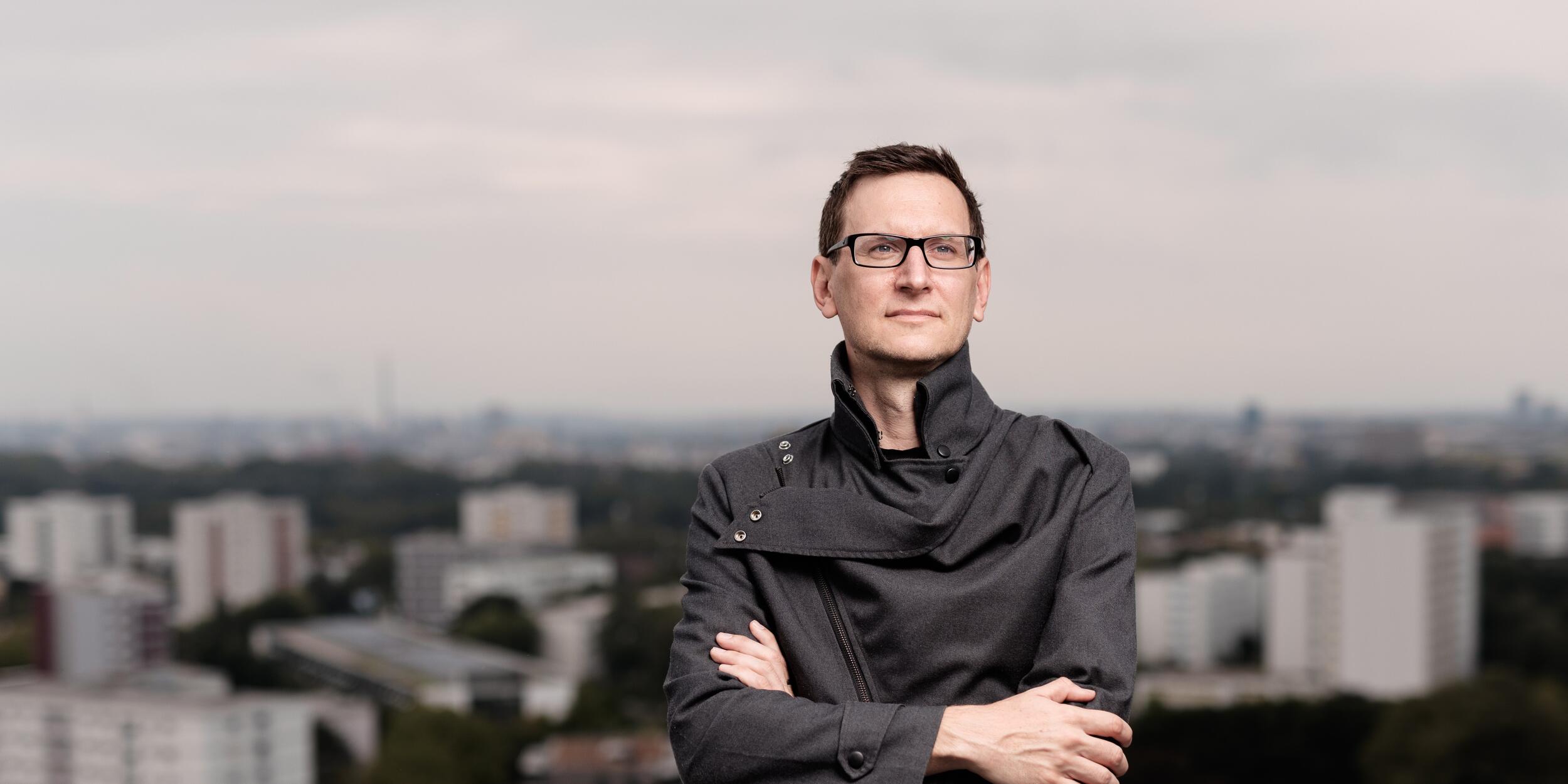Christopher Lindinger takes up professorship for art & digitality

Christopher Lindinger is an innovation researcher, computer scientist and cultural manager. He was co-founder of the Futurelab at Ars Electronica in Linz and co-director of the Ars Electronica Media Lab until he was appointed Vice Rector at JKU Linz in 2019. On October 1, 2023, he will take up a professorship for Art & Digitality at the Mozarteum University.
Contact
Iris Wagner
The Mozarteum University starts the academic year 2023/24 with a new professorship for Art & Digitality. "Digitality can be understood as a space of thought and action, in which new cultural techniques penetrate, complement, develop or sometimes lead to an elsewhere the traditional forms of action in teaching, research and in the development and indexing. Thanks to generous support from the state of Salzburg, we as the Mozarteum University can now conquer this space. A total of two professorships and one person with special IT expertise will be entrusted with integrating the entire university with all its strengths and traditional quality standards into this process. We are delighted to have Christopher Lindinger, an expert in exploratory organizational development, on board," says Rector Elisabeth Gutjahr.
As of October 1, 2023, Christopher Lindinger will be intensively involved in the development and profiling of the Institute for Open Arts, founded in 2023, as well as the Data Arts Forum, develop teaching concepts in the field of art and digitality, and help design the X-Reality Lab of the Mozarteum University at the Kurgarten (UMAK), which is currently being planned. "The Mozarteum University has distinguished itself through its positioning and consistent further development in recent years within the university network. It is impressive to see the development the institution is undergoing and the value it has for the city, the region and beyond. It acts as an indispensable focal point for the further cultural development of Salzburg and undoubtedly represents an exciting place of activity - I am very much looking forward to the new task," says Christopher Lindinger in his first statement on the appointment.
Lindinger studied computer science at Johannes Kepler University Linz and completed postgraduate studies in cultural management in Salzburg. He developed contributions to supercomputer visualization of abstract mathematical models as a guest researcher at the University of Illinois at Chicago, programmed software for the U.S. space agency NASA, the National Center for Supercomputing Applications (NCSA), the Research Institute for Symbolic Computation at Johannes Kepler University Linz and the computer games industry.
In 1997, he was a founding member of the Ars Electronica Futurelab, realized media art projects such as Gulliver's World, curated a number of exhibitions in this environment and was a jury member at festivals and competitions.
Starting in 2002, he headed the Research and Innovation Division at the Ars Electronica Futurelab and shaped R&D collaborations with international partners from industry and academia. This included the design of digital creativity support tools, investigations into the potential of disruptive technologies such as VR or blockchain, innovation strategies for future social scenarios and applications in the field of robotics. As overall project manager and co-curator, Christopher Lindinger was also responsible for the Ars Electronica Center's new museum building and permanent exhibition as part of Linz's 2009 Capital of Culture year.
Since 2013, the development of self-driving motor vehicles, primarily for Mercedes-Benz, has been a central focus of his work as head of research at the Ars Electronica Futurelab. The focus of his scientific work was on user acceptance, interaction between autonomous cars and pedestrians, and the networked ecosystem of self-driving means of transportation.
Since October 2019, Christopher Lindinger has been Vice Rector for Innovation and Researchers at Johannes Kepler University Linz.
In addition, Christopher Lindinger is considered the architect of the UNESCO City of Media Arts Linz, as he played a leading role in the conception of the application for the title.